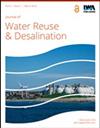中国城市雨水收集技术综述
IF 2.3
Q2 Environmental Science
引用次数: 1
摘要
在过去的30年里,中国城市的水安全问题日益严重,这在很大程度上是由于快速的城市化、人口增长和水基础设施投资不成比例。城市雨水收集作为一种家庭和社区层面的雨水管理措施,在这一时期得到了广泛的应用。本研究综述了中国城市大学水处理的相关政策、方法、技术、建设、实施和效益。我们的研究表明,在过去的30年里,中国的城市大学建设经历了三个阶段:初始发展阶段、快速发展阶段和海绵城市建设阶段。城市雨水灌溉系统的研究主要集中在雨水收集、储存、利用和管理等技术方面,对政策和效益分析的关注有限。然而,在中国,城市基础设施建设和实施的规模仍然很小,需要进一步发展。目前,URWH的评估涵盖了社会、生态和环境效益,但经济效益需要进一步加强。大学本科教育实施的下一步应该是加强政策、法律和设计标准的研究和发展。本研究为中国城市和其他发展中国家城市实施城市卫生保健提供了指导。本文章由计算机程序翻译,如有差异,请以英文原文为准。
A review of urban rainwater harvesting in China
Over the past 30 years, water security issue in Chinese cities has become increasingly serious, largely due to rapid urbanization, population growth and disproportionate investment in water infrastructure. Urban rainwater harvesting (URWH), a household and community-level rainwater management measure, has been widely used during this period. This study provides a critical review of the policies, methods, technology, construction, implementation and benefits related to URWH in China. We show that URWH in China has gone through three phases over the past 30 years: an initial development phase, a rapid development phase and a sponge city construction phase. URWH research has focused mainly on rainwater harvesting, storage, utilization, management and other technologies, with limited attention to policy and benefit analysis. However, the scale of URWH construction and implementation in China remains small and needs further development. Currently, while URWH assessments cover social, ecological and environmental benefits, the economic benefits need to be further strengthened. The next step in URWH implementation should be to strengthen research and development of policy, legal and design standards. This study provides guidance for the implementation of URWH in Chinese cities and other cities alike in developing countries.
求助全文
通过发布文献求助,成功后即可免费获取论文全文。
去求助
来源期刊

Journal of Water Reuse and Desalination
ENGINEERING, ENVIRONMENTAL-WATER RESOURCES
CiteScore
4.30
自引率
0.00%
发文量
23
审稿时长
16 weeks
期刊介绍:
Journal of Water Reuse and Desalination publishes refereed review articles, theoretical and experimental research papers, new findings and issues of unplanned and planned reuse. The journal welcomes contributions from developing and developed countries.
 求助内容:
求助内容: 应助结果提醒方式:
应助结果提醒方式:


